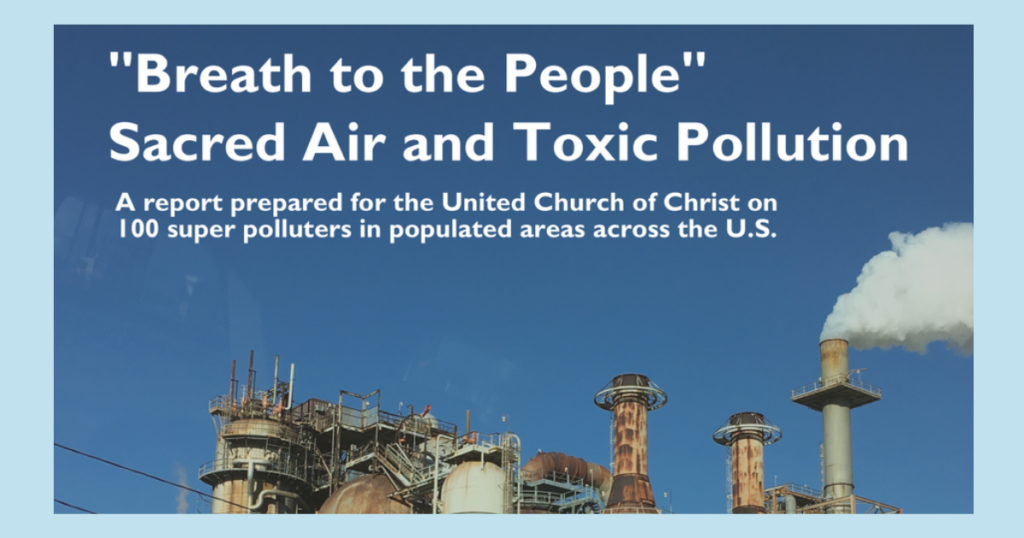Quoting Isaiah, UCC study lists ‘Toxic 100’ air polluters and calls for action
A U.S. map dotted with factory icons, unveiled online today, invites the public to see if the air they breathe contains toxic emissions from any of 100 “super polluters” in 28 states – facilities with thousands of children living near them.
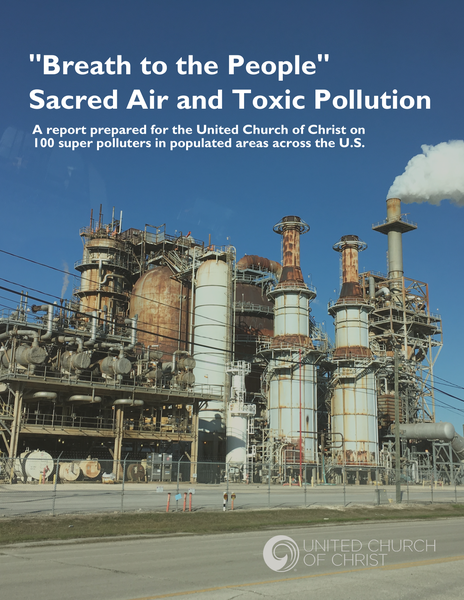 The publisher of the map, the United Church of Christ, is encouraging people to click on it, see lists of chemicals being emitted near them and call on their elected representatives to stop the pollution – and to fight federal rollbacks in environmental protections.
The publisher of the map, the United Church of Christ, is encouraging people to click on it, see lists of chemicals being emitted near them and call on their elected representatives to stop the pollution – and to fight federal rollbacks in environmental protections.
Armed with data from a respected research firm, the UCC posted the map at a new website, ucc.org/breathtothepeople, along with a detailed study listing these “super polluters” in heavily populated areas. Its title: “Breath to the People: Sacred Air and Toxic Pollution.”
Church leaders unveiled the evidence at an Ash Wednesday news conference in Washington, D.C. The map shows clusters of these “Toxic 100” polluters in such areas as Houston, Louisiana’s “Cancer Alley” and the southeast shore of Lake Erie.
Small children living nearby
Some 113,000 children under age 5 – the most vulnerable population because of their developing bodies – live within three miles of the listed facilities, according to the report.
“Parents have no idea what their children are breathing, let alone the kids that play near them,” said Yvette Arellano of Houston, which has the largest cluster of polluters on the map. She is an organizer and policy advocate with Texas Justice Environmental Advocacy Services, known as TEJAS. “Sometimes moms will take their children inside because it smells a very specific way. They don’t know exactly what’s affecting their kids, but they do know it’s dangerous.”
“Children are particularly vulnerable to toxic air pollution because their brains, their bodies, their lungs, all of their organs are still growing and developing,” said Dr. Kristie Ross, a pediatric pulmonologist in Cleveland, who did not work on the report but was asked to comment on pollution and kids. “And when you expose somebody to a poison, like air pollution is, it can impact all of those things.”
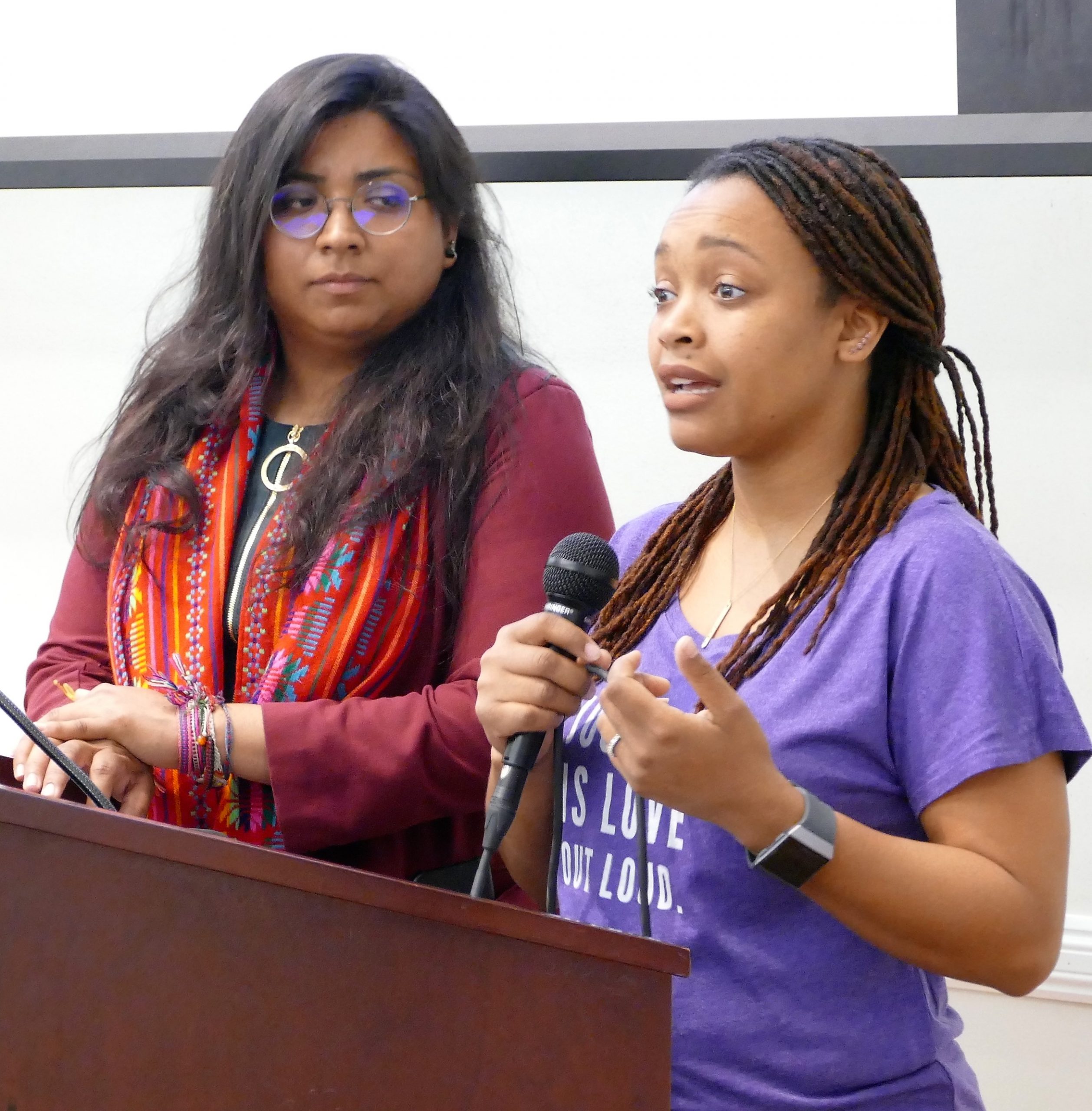 The report was produced by the Environmental Integrity Project, a nonpartisan watchdog that the UCC enlisted for the study (see related article). EIP based its research on self-reported data from the 15,500 facilities nationwide that are included in the U.S. Environmental Protection Agency’s Toxics Release Inventory. “Our analysis shows that over a third of all toxic emissions nationwide came from just 100 facilities that have at least 250 people living within a mile,” the researchers said in the report.
The report was produced by the Environmental Integrity Project, a nonpartisan watchdog that the UCC enlisted for the study (see related article). EIP based its research on self-reported data from the 15,500 facilities nationwide that are included in the U.S. Environmental Protection Agency’s Toxics Release Inventory. “Our analysis shows that over a third of all toxic emissions nationwide came from just 100 facilities that have at least 250 people living within a mile,” the researchers said in the report.
In choosing and ranking the Toxic 100, researchers took into account both the density of nearby populations and the toxicity of emissions. “Not all chemicals pose the same threat to human health at the same concentrations,” they said. “A pound of ethylene oxide can do a lot more harm than a pound of styrene. Weighting chemical emissions by the harm they can cause if inhaled provides a more accurate indication of where emissions might pose the largest threat to human health.”
Citizens urged to ‘act now’
“We took the title of this study, ‘Breath to the People,’ from the Book of Isaiah because we believe clean air is a gift from God,” said the Rev. Traci Blackmon, UCC associate general minister. “So are our precious children. They, like all people, deserve clean air to breathe. We have identified the facilities whose own reports show they are responsible for nearly half the toxic chemicals being pumped into the air in the United States. The good news is, we, the people, can mandate measures to significantly reduce their emissions. Local, state and federal authorities and the polluters themselves must act now to rid the air of toxic chemicals.”
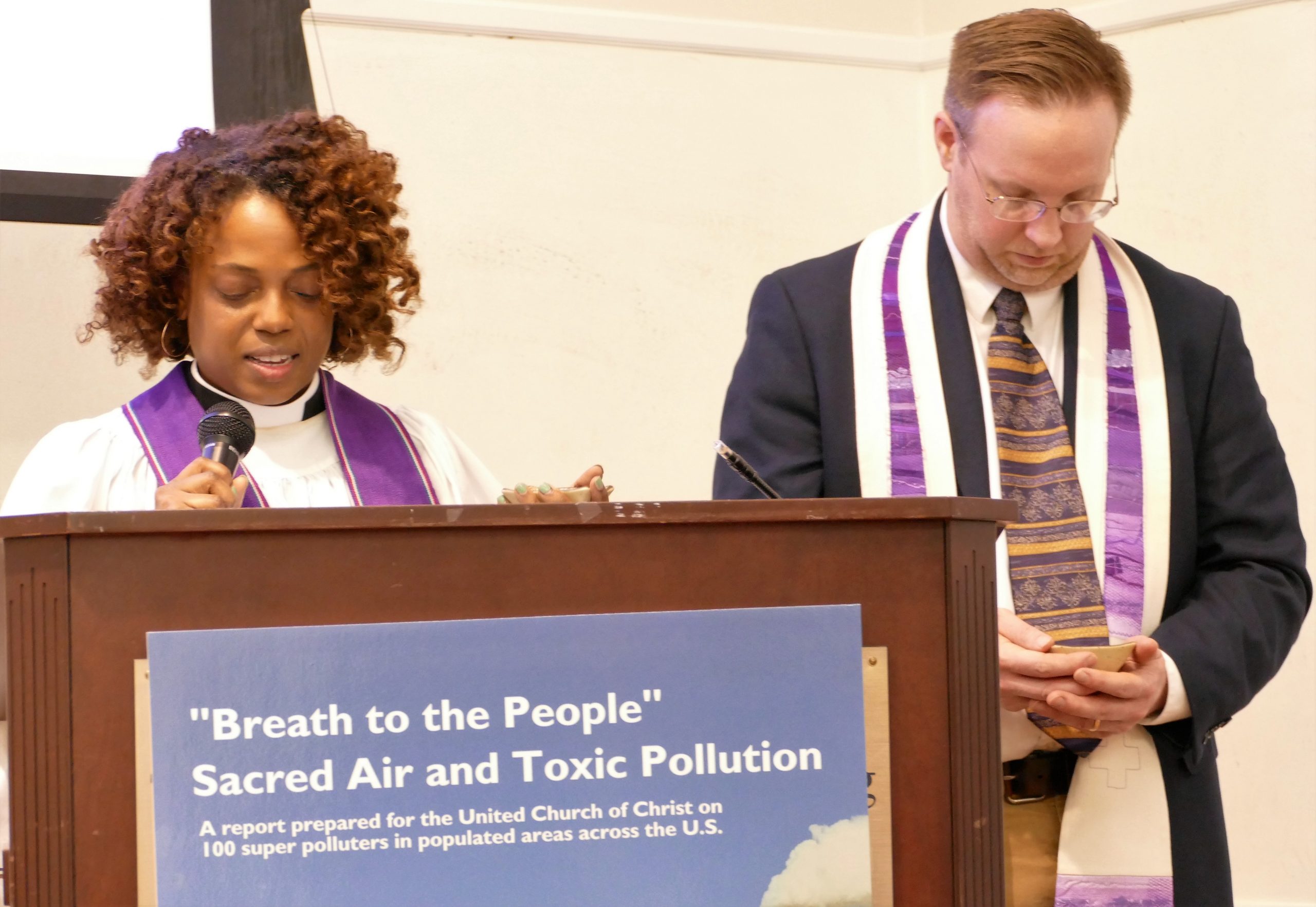 She encouraged concerned citizens to find their elected representatives, using the “Take Action” button at the report’s website, and call for action regarding the named facilities. The report recommends:
She encouraged concerned citizens to find their elected representatives, using the “Take Action” button at the report’s website, and call for action regarding the named facilities. The report recommends:
- Targeted enforcement by federal and state authorities to reduce emissions from facilities that release the most toxic pollution.
- Action by regulators and the companies themselves to reduce leaks, known in the industry as “fugitive emissions.” For example, the report says, companies that use or process carcinogens such as ethylene oxide or benzene should be required to install fence line monitoring systems to detect leaks and provide data to the public.
- In an era of rapid expansion of the chemical industry, careful scrutiny of applications for expansions and new construction. “The well-being and fair treatment of residents of surrounding communities need to be top priorities,” it says.
- Requiring more industries and types of facilities to report emissions to the EPA. Municipal waste incinerators and gas processing plants, for example, do not currently have to.
Rollbacks, ashes, environmental justice
Church leaders also urged concerned citizens to ask their representatives to resist efforts to gut environmental regulations.
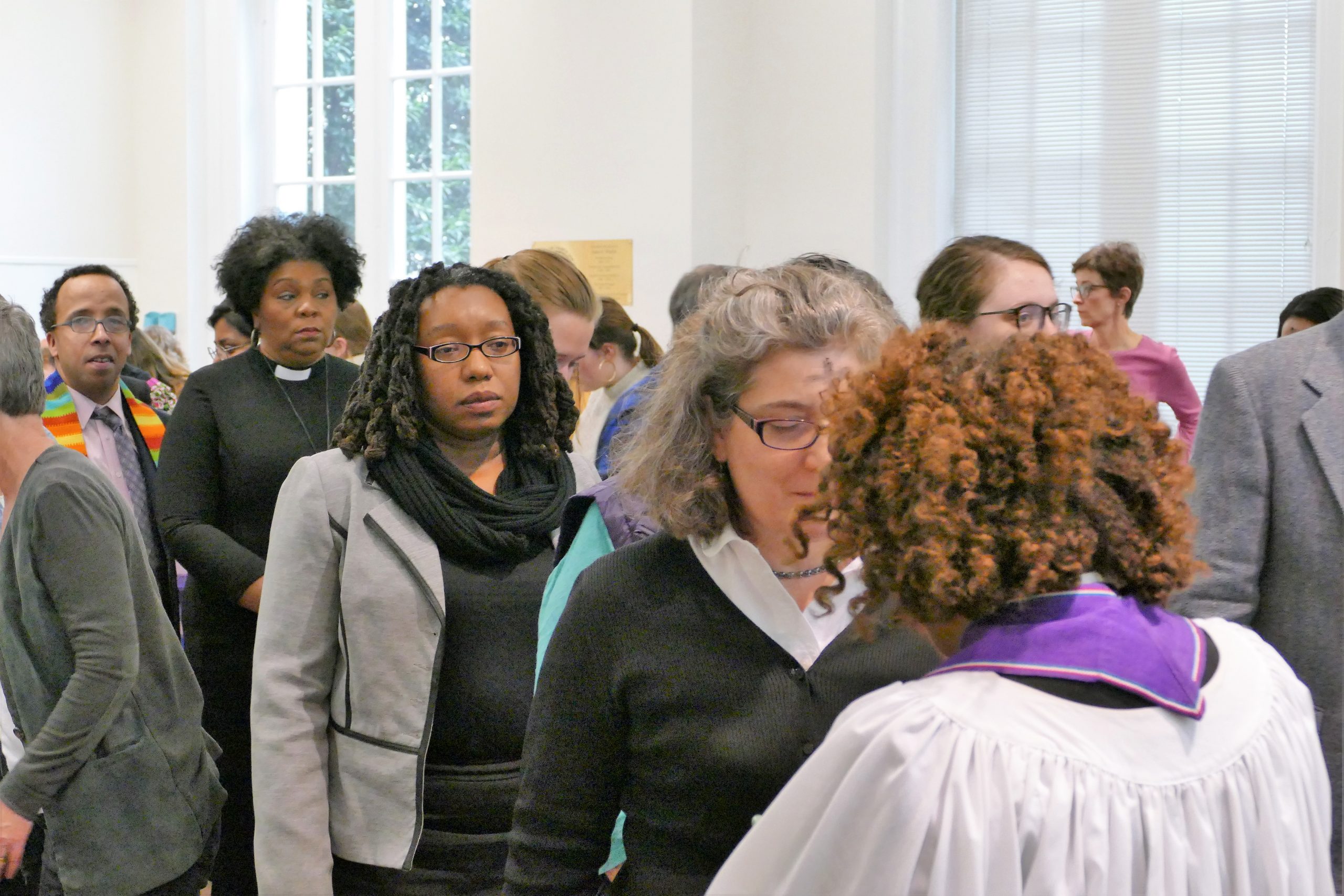 “It is critical that we call on Congress to speak out against rollbacks of critical environmental protections by the administration, conduct meaningful oversight over violations of existing toxic air standards, and support robust funding for the Environmental Protection Agency,” said an alert in the “Take Action” section of the report’s website
“It is critical that we call on Congress to speak out against rollbacks of critical environmental protections by the administration, conduct meaningful oversight over violations of existing toxic air standards, and support robust funding for the Environmental Protection Agency,” said an alert in the “Take Action” section of the report’s website
The news conference invoked the religious basis for environmental activism at several points. It concluded with a ritual for the start of the Christian season of Lent, in which clergy marked the foreheads of participants with ashes. It also embraced the UCC’s heritage of groundbreaking environmental justice work.
“It is not an accident that we are releasing this report on Ash Wednesday, a day associated with repentance,” said the Rev. Brooks Berndt, UCC minister for environmental justice, the church’s point person for the project. “In its Greek origins, repentance was about turning around and changing course to go in a better direction. As a nation, it is time for us to go in a better direction for the sake of our children and communities across the country.”
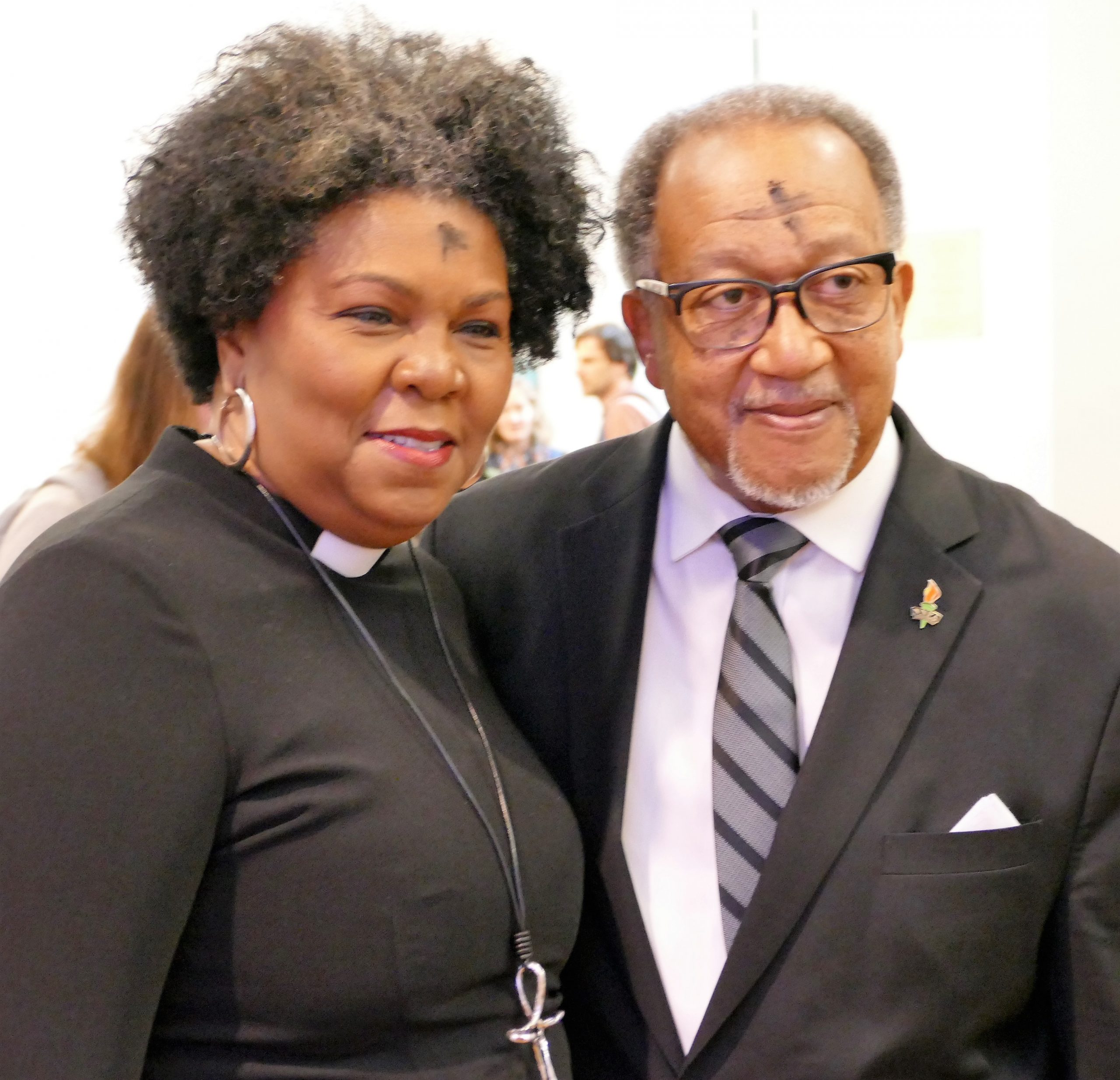 Among the ministers speaking at the news conference was one representing the UCC’s heritage of environmental justice, the Rev. Benjamin F. Chavis Jr. He led the UCC’s Commission for Racial Justice at the time of its groundbreaking 1987 report, “Toxic Wastes and Race in the United States.” More than 30 years later, it is still cited by journalists and academics.
Among the ministers speaking at the news conference was one representing the UCC’s heritage of environmental justice, the Rev. Benjamin F. Chavis Jr. He led the UCC’s Commission for Racial Justice at the time of its groundbreaking 1987 report, “Toxic Wastes and Race in the United States.” More than 30 years later, it is still cited by journalists and academics.
“We thank God that the United Church of Christ is still on the case on this issue,” Chavis said. He said the new report “represents not only the facts that have been found about these exposures to toxicity, these exposures of wrongdoing to the sacredness of our environment, but this report is a call to action. A call to action of people of all faiths. Call to action of all communities. All families. We must do something proactive. We must do something, not just to point to the wrongs, but we have to right the wrongs. It’s our responsibility as people of faith, as people of commitment.”
Toxic air affects kids indoors, too
And speakers repeatedly stressed the vulnerability of the young. “Children are exposed to air pollution not only outdoors, but actually when they spend time indoors as well,” said Ross, the Cleveland pulmonologist. “We carry heavy metals and other toxins in on our clothing, our shoes. They accumulate inside churches, schools, play areas, and children get exposure both when they breathe those things in and also when they touch the floor and then touch their mouths, and through exposure through their skin.”
To the report’s lead researcher, the “Breath to the People” project was personal as well as statistical. “I am passionate about reducing pollution, especially when it impacts people who don’t have the power to do anything about it,” said Courtney Bernhardt, EIP’s director of research. “Becoming a mother gave new urgency to my work. My 2-year-old daughter depends on me and other grownups to make the right choices. Reducing toxic air pollution is one of the best choices we can make right now to ensure a healthier and safer future.”
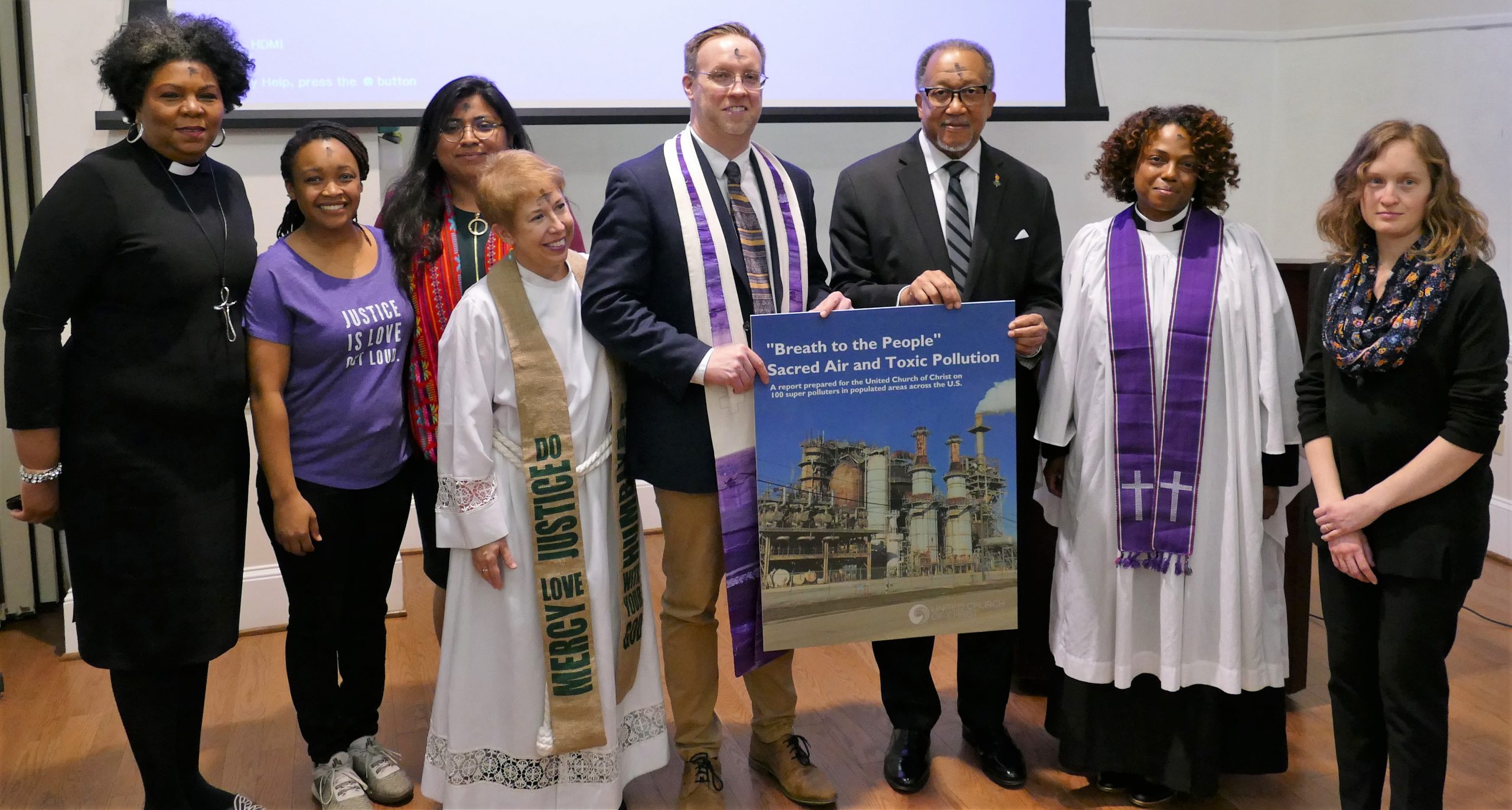
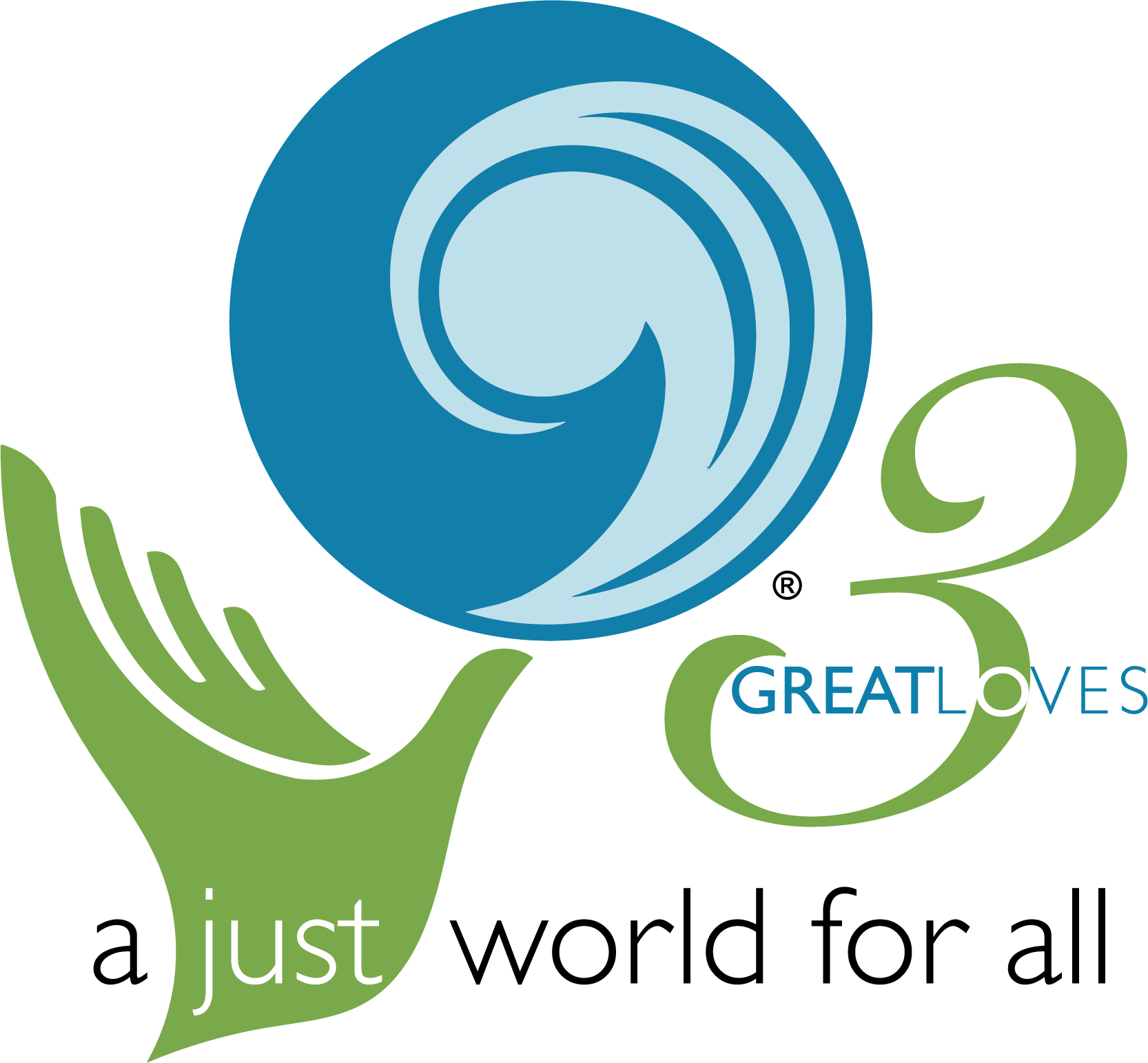 3 Great Loves is a denomination-wide mission initiative telling the stories of how we live out God’s love through the lens of 3 Great Loves: Love of Neighbor, Love of Children, and Love of Creation. To share the stories of how we, as a united church, live out God’s love in missional, measurable, and meaningful ways, please visit 3greatloves.org.
3 Great Loves is a denomination-wide mission initiative telling the stories of how we live out God’s love through the lens of 3 Great Loves: Love of Neighbor, Love of Children, and Love of Creation. To share the stories of how we, as a united church, live out God’s love in missional, measurable, and meaningful ways, please visit 3greatloves.org.Related News
A Prophetic Call for Justice and Peace in Palestine
The executive leaders of the United Church of Christ have issued the following statement...
Read More‘Love is Greater Than Fear’: Regional Youth Events get to the heart of gospel message
United Church of Christ teens attending this summer’s Regional Youth Events (RYE) are...
Read MoreUCC desk calendars available to order now
Prepare for your day, month and year with the United Church of Christ desk calendar —...
Read More